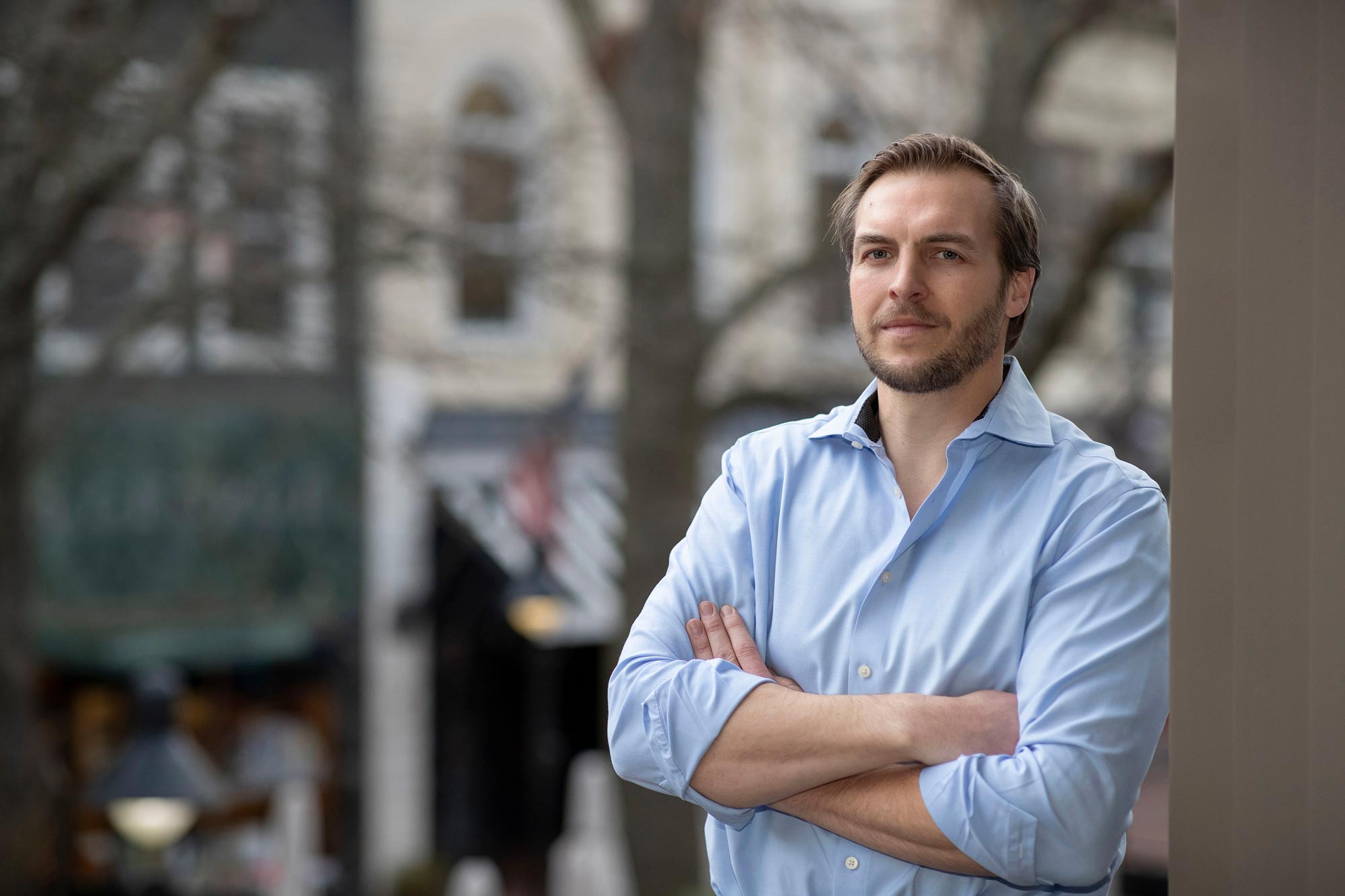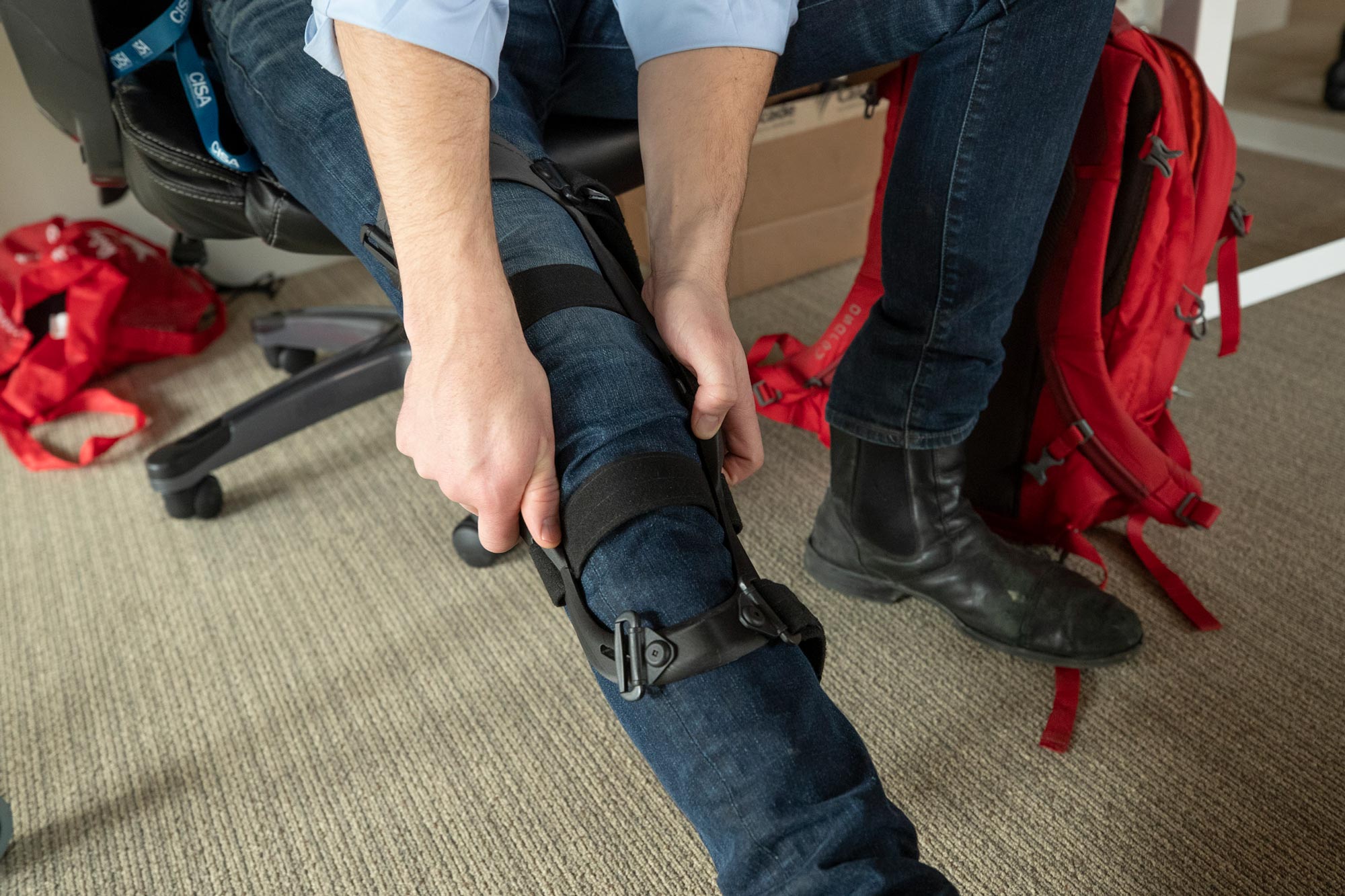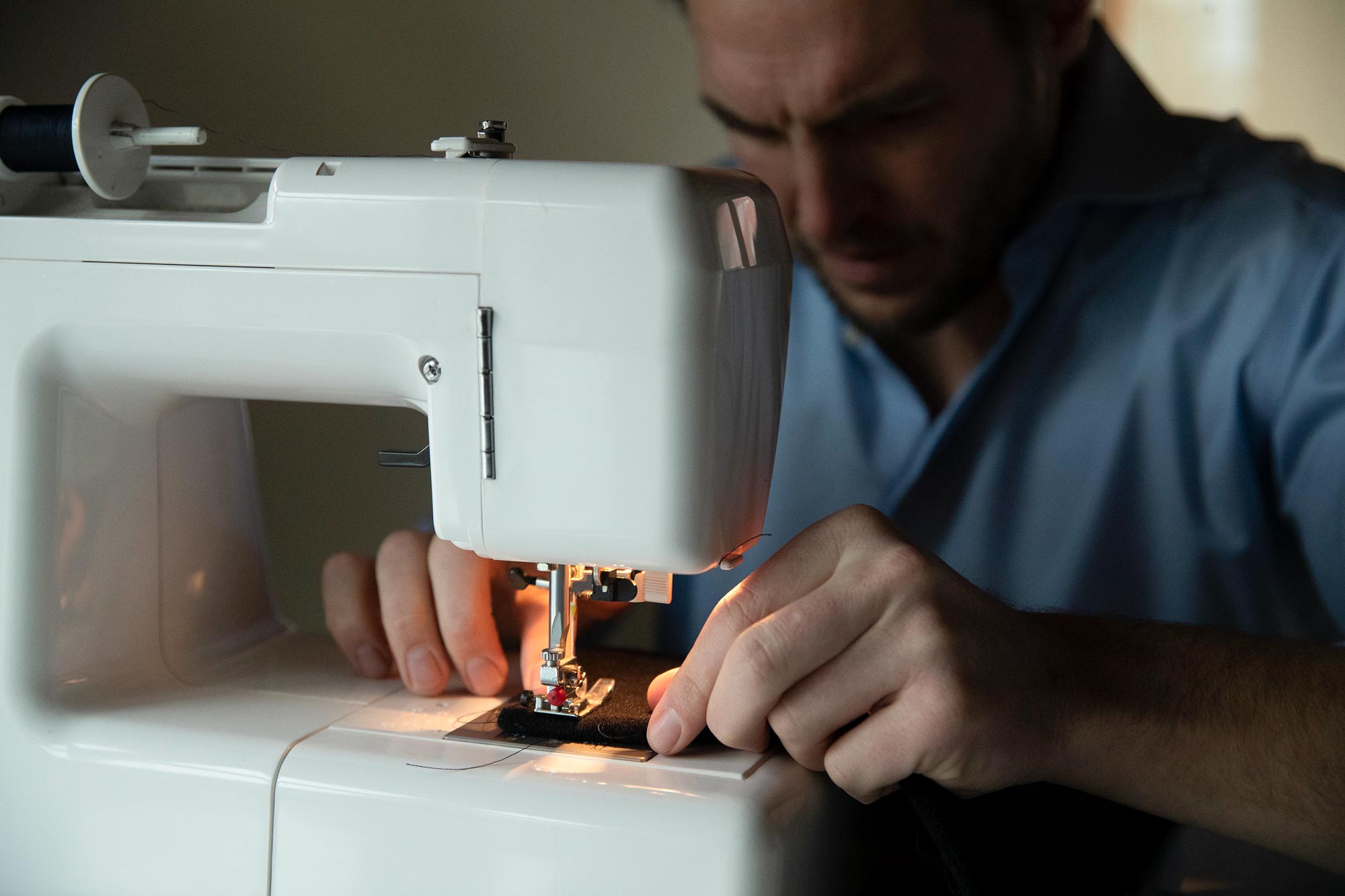An old James Bond movie inspired the name of University of Virginia alumnus Dave Johnson’s new company, Icarus, so it only makes sense that Johnson’s first product looks – and sounds like – something the fictional character “Q” might have devised in his workshop.
Johnson, in Q-like fashion, calls his device the Icarus Ascender, which is classified as a “Tri-compartment unloader.”
Designed for people like himself who have little to no cartilage in their knees, Johnson believes his invention – which he has been developing through the Batten Institute at the Darden School of Business’ Catalyst Accelerator program – is a knee brace “game-changer.”
“Most knee braces are just providing stability and might put a little pressure on the knee one direction or the other,” Johnson said. “The Icarus brace is actually giving you assistance, so most of the pain goes away, if not all of it”
Johnson’s journey to starting his own medical apparatus company has been circuitous.
Raised by his parents on a dairy farm in Washington after his father sold his company that built hydraulic systems, Johnson graduated from Tulane University with a degree in chemical engineering in 2004 before earning a master’s degree in chemical engineering from UVA. He had worked for the Department of Defense in Charlottesville for 10 years prior to accepting a position as a chemical engineer in the Department of Homeland Security in 2015, where he still works today as a chemical weapons expert implementing a policy that regulates chemicals for their potential use as weapons. He also worked at the State Department from 2017 to 2018 on weapons of mass destruction non-proliferation issues.
But Johnson, 38, has always had an entrepreneurial spirit. His first start-up was a non-profit solar company, which he also called Icarus after the name of the solar satellite in the 2002 Bond flick, “Die Another Day.”
“I’ve always liked the word and the Greek mythology story behind it – so I just kept it,” Johnson said.

Johnson said being socially conscious is one of his company’s foundations.
It was after undergoing surgery in 2014 to alleviate knee pain that Johnson realized the severity of his cartilage damage, which stemmed from a high school football injury.
Johnson, an avid snowboarder, said he badly wanted to remain active and didn’t like the idea of waiting 30-odd years to undergo a knee replacement, so he decided to take matters into his own hands.
After being unable to find any knee braces to his liking, he began trying to create his own, first by loading springs into existing braces.
Almost immediately, Johnson knew he was onto something.
“There’s a huge vacuum for people who have cartilage damage,” he said. “People bounce around [from brace to brace] looking for a solution to the pain.”
Johnson came up with an idea to use the facial recognition camera on newer model iPhones – which take images in infrared – to capture photos of the knee, which, in turn, could help him design custom braces through proprietary software.
Another unique aspect of Johnson’s brace is the fact it weighs only 13 ounces and – with the turn of a knob on the side of the brace – can take up to 50 pounds of pressure off a knee.
“It makes your knee feel like you weigh a lot less than you actually do,” Johnson said. “My knee thinks I’m a 10-year-old and [that] I weigh half my weight.”
To demonstrate, the 6-foot-1, 200-pound Johnson put the brace on, then did a squat.
“Normally this would kill me,” he said, “but with this, there’s no pain at all. “I’m postponing a knee replacement surgery and still doing the activities I love. Millions of people quit skiing, traveling or playing sports because their knees hurt. We’re changing that.”

Johnson suffered a football injury in high school that has left him with very little cartilage in his knee.
Johnson said the only other brace he’s seen like his costs $2,400 and is big and clunky.
Johnson said he hasn’t locked down the price point for his brace, which is made of carbon fiber and has a patent pending, but he expects it will be significantly cheaper, despite already being lighter, more powerful and better customized than any competing products. Johnson said people who try his brace are “ecstatic and tickled.”
One such person is Tony LaBua. The owner of Chaps Ice Cream on Charlottesville’s Downtown Mall has had knee problems for years and was blown away by the brace.
“I was a little reluctant at first,” LaBua said last week as he served a customer, “but I put it on, sat up and was like, ‘Wow!’ I love it. It just takes the pressure off the part that hurts.”
Johnson said being socially conscious is one of his company’s foundations. To that end, he has already done pro bono work for Wounded Warriors and with a number of residents with knee problems in the Charlottesville community who have tested the brace.
Long-term, he said that work will continue. “If you don’t have insurance or don’t have the means, we will find a way to get you a brace,” he said.
Having funded Icarus personally since its inception in 2015, Johnson is starting to seek investors. Catalyst, the Darden program that provides early start-ups in Central Virginia nine months of workspace, funding and other resources, has been a godsend, Johnson said.
“It’s introduced me to people who can help with the company, who may want to work with us and who may want to invest in us,” he said. “It’s really helped educate me about the many facets of starting a company.”
Johnson said he has also benefitted from the mentorship and leadership of orthopedists, kinesiologists, engineers, and orthotic and prosthetic experts at UVA, including Dr. David Diduch, Dr. Shawn Russell, Dr. Joe Hart and Kevin King.
He may not be saving the world like James Bond, but through Icarus, Johnson believes he’s rescuing one knee pain sufferer at a time.
“When I worked for the government, it was very cool and I was doing awesome things – being creative on how to make sure bad things don’t happen,” he said.
“But I was always looking for something I was truly passionate about that makes a positive impact in people’s lives … This is a great feeling.”
Media Contact
Article Information
January 29, 2020
/content/alumnus-aims-rescue-one-knee-pain-sufferer-time-custom-braces

